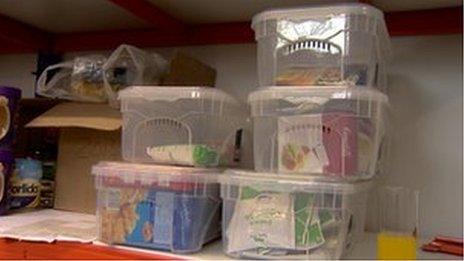Trussell Trust: Food bank use rises by two thirds in Scotland
- Published

The use of food banks in Scotland has risen by two-thirds over the last year, according to new figures from the charity the Trussell Trust.
It issued a three-day supply of emergency food on 117,689 occasions last year - a 65% increase on the figures for the previous year.
More than 36,000 of the parcels were distributed to children.
Across the UK, the trust's food banks were used more than one million times in 2014/15.
In 2011, there was one food bank in Scotland operated in partnership with the Trussell Trust.
The charity said that as of April 2015, it had 50 food banks in 27 Scottish local authorities.
'Too ashamed'
The trust records the number of times that adults and children are given a three-day supply of emergency food from its centres.
It does not measure the number of individual users - but estimates that more than 65% were only helped once over a six month period, while 7.5% needed four or more vouchers.
The charity has broken the figures on food bank use down by council areas - with its food banks in Glasgow being used 18,000 times in the last financial year.
The figure was about 14,000 in Edinburgh and more than 10,000 in Fife.
The charity said the main reasons behind people being referred to its food banks were due to a benefit delay, low income or a benefit change.
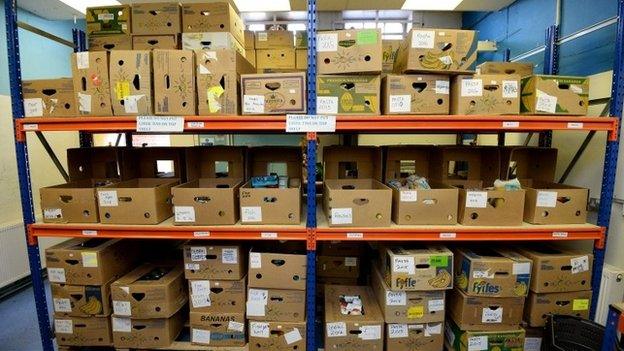
Trussell Trust food banks were visited by 10,489 people in December 2014 - a third of them were children
Low income showed the biggest numerical rise, with 24,609 people referred for this reason in 2014/15 compared with 13,552 the previous year, an increase of more than 80%.
Ewan Gurr, Scotland network manager at The Trussell Trust, said: "Despite welcome signs of economic recovery, hunger continues to affect significant numbers of men, women and children in Scotland.
"The full extent of the problem could well be much wider as the Trussell Trust figures do not include people who are helped by other food charities or those who feel too ashamed to seek help."
The charity said as well as providing food it was also offering support services, including debt counselling and welfare advice.
Mr Gurr added: "The latest figures highlight how vital it is that we all work to prevent and relieve hunger in the United Kingdom. It is absolutely crucial that we listen to the challenges of those using food banks to truly understand the nature of the challenges people face.
"The experiences of those who experience hunger is the key to finding a solution."
The Trussell Trust, which partners with churches and communities, operates more than 1,200 food distribution centres across the UK.
A scoping study funded by the Scottish government, external in 2013 to provide insight into the extent of food aid provision in Scotland reported that the Trussell Trust's data is a good indicator of general provision and demand trends and reasons for demand experienced by other providers of food parcels.
The study recognised that there are many non-Trust food banks - they account for only 20% of all food centres in Glasgow - but that there is no definitive list of Scottish food banks.
- Published16 January 2015
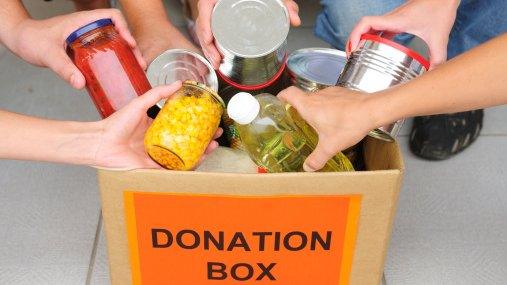
- Published16 January 2015
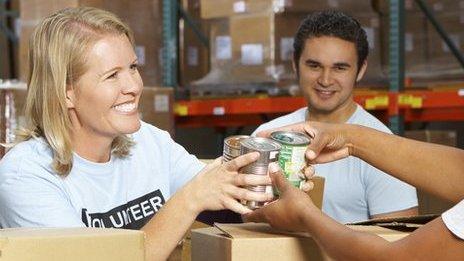
- Published9 June 2014
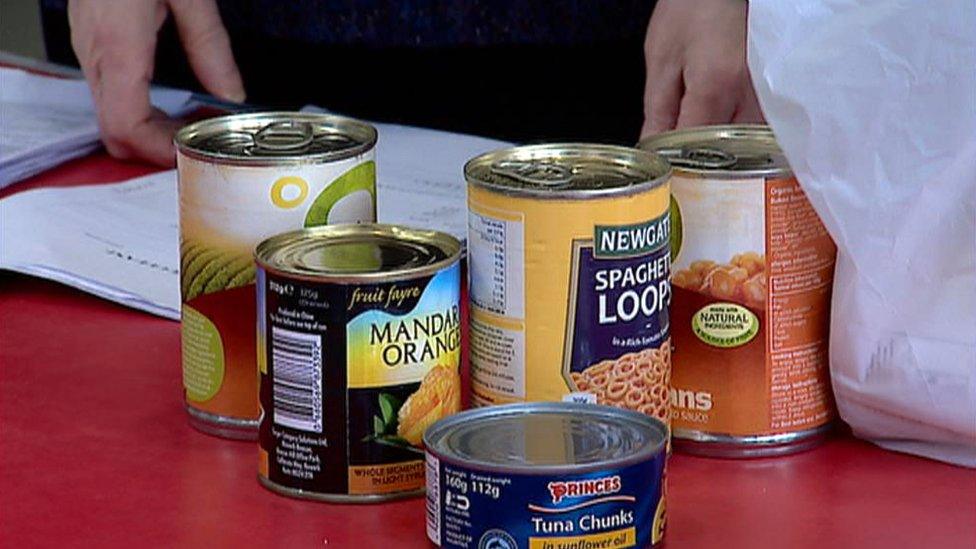
- Published16 April 2014
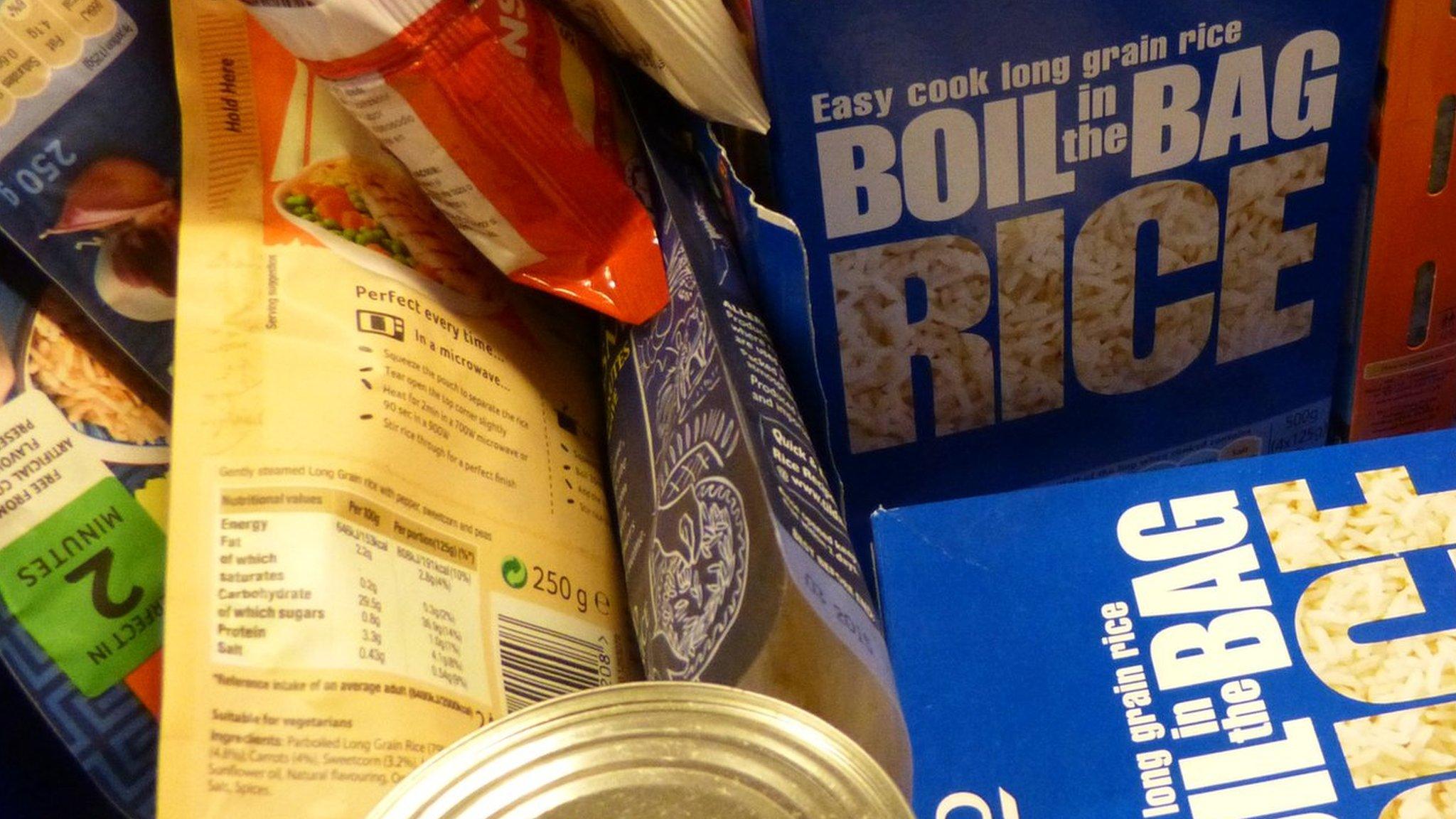
- Published28 April 2012
